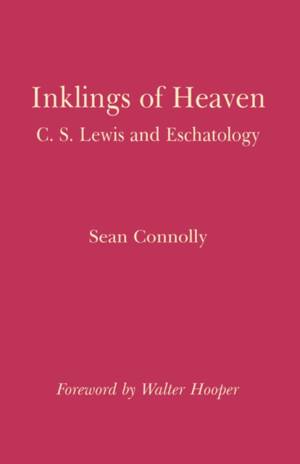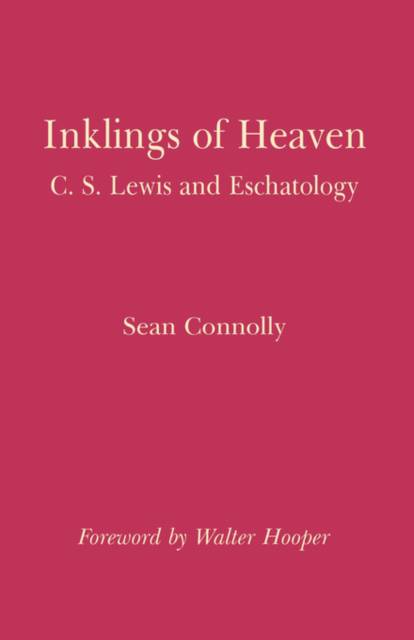
- Retrait gratuit dans votre magasin Club
- 7.000.000 titres dans notre catalogue
- Payer en toute sécurité
- Toujours un magasin près de chez vous
- Retrait gratuit dans votre magasin Club
- 7.000.0000 titres dans notre catalogue
- Payer en toute sécurité
- Toujours un magasin près de chez vous
Inklings of Heaven
Examining Eschatology and Related Imagery in the Writings of C. S. Lewis
Walter Hooper, Sean Connolly, Hooper Walter
Livre broché | Anglais
53,45 €
+ 106 points
Description
It might seem something of a spurious claim to suggest that Lewis was an eschatologist when the word eschatology hardly ever appears in the corpus of his published writing, but nevertheless this book boldly makes that claim. C. S. Lewis was not a classically trained theologian. He wrote no systematic theological treatise. Time and again he referred to himself as a layman and an amateur, as one theologically uneducated and even unlearned. Yet here was a man, English scholar, broadcaster, children's writer, and Christian apologist, whose later life became very much caught up in the business of heaven. Together with his brother Warnie, with his friends J.R.R. Tolkien, Charles Williams, and many others, C.S.Lewis made up an intellectual group which called themselves the 'Inklings'. The joke, of course, was a literary one but it could just as easily have been eschatological. For Lewis, above all, the heaven-directed was never lacking. His work is wrought with the sense of another world, more solid and of a deeper reality than we can ever begin to comprehend. He captured perfectly the truth that we have an inkling of that Something More - if only we would realise it - in every longed for, aching, yearned after, itching and unsatisfied moment of our lives. Lewis's work - and thus this book - is not just about eschatology. It is about an eschatological desire that drives our Christian faith and calls us to communion with God. "The author brings together, with what seems the greatest ease, the interlocking threads of Lewis's thought. The book is a logical and brilliantly clear illumination of the outstanding gifts that came together when C.S. Lewis's reason and imagination were forever reconciled." Walter Hooper Dr Sean Connolly studied theology at the Pontifical University of St Thomas Aquinas in Rome. His most recent research examined the life and writings of C.S. Lewis. He has published two previous books: 'The Road to Holiness' (St Paul's, 1999) and 'Simple Priesthood' (St Paul's 2001). He currently teaches ethics and religious studies in Gloucestershire.
Spécifications
Parties prenantes
- Auteur(s) :
- Editeur:
Contenu
- Nombre de pages :
- 324
- Langue:
- Anglais
Caractéristiques
- EAN:
- 9780852446591
- Date de parution :
- 01-10-07
- Format:
- Livre broché
- Format numérique:
- Trade paperback (VS)
- Dimensions :
- 140 mm x 216 mm
- Poids :
- 412 g

Les avis
Nous publions uniquement les avis qui respectent les conditions requises. Consultez nos conditions pour les avis.






